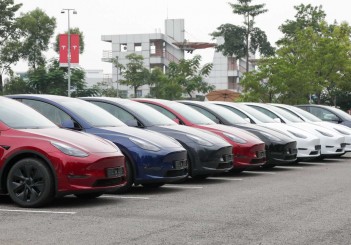SHAH ALAM: The Malaysia Automotive Institute (MAI) expects vehicle sales for the first six months of this year to be higher than 333,142 units recorded in the corresponding period last year despite concerns over the goods and services tax (GST) that will come into force tomorrow.
MAI chief executive officer Mohamad Madani Sahari said that the higher total industry volume (TIV) expected for the first half of this year was based on robust January to March TIVs.
He expected March TIV to hit 55,000 units, higher than the January and February TIV of 51,000 and 52,000 units, respectively.
“There was an increase in TIVs from January to February, and based on what we are going to achieve in March, we expect the TIV for the first half of this year would be better than the same period last year,” he said at a press conference at the LPS (lean production system) roundtable dialog 2015 on “Review on Jidoka concept” yesterday.
“We would see similar number of new launches as last year. Malaysians are looking for vehicles that are more fuel efficient, comfortable and have more safety features and this would drive growth,” he added.
He expected post-GST, vehicles sales to remain “normal”.
Madani reiterated that the prices of most models should come down by between 1% and 3% post-GST.
“The reduction is quite minimum, that is why when people ask me if they should buy a car after GST, I would say no.
“The promotions that are given by the some original equipment manufacturers (OEMs) currently are better than the 1% to 3%,” he explained.
“There is no other way to ensure more competitive pricing than market forces,” he added, referring to OEMs’ strategy to achieve their target sales.
MAI targets the TIV of 700,000 units this year to remain intact, which is 2% higher than last year’s TIV of 686,000 units.
Madani said the Government was working on rolling out the Euro-5 grade diesel in places like the Klang Valley, Penang and Pahang at selected petrol stations in stages by this year. Currently, the Euro-5 diesel is available in Johor.
Madani noted that the MAI had been coordinating and facilitating the Lean Production System (LPS) programme over the past five years to resolve quality issues and cost reduction.
“We have done this LPS programme with almost 100 vendors, which has seen about RM230mil in total cost savings annually,” he said.










